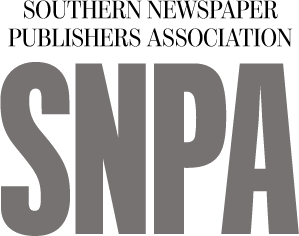Obama recess appointment of NLRB members unconstitutional
On June 26, the U.S. Supreme Court ruled that the president violated the Constitution of the United States of America when he used his recess appointments' power to fill three vacancies on the National Labor Relations Board.
The Constitution allows the president to "fill up all vacancies that may happen during the recess of the Senate." The president appointed three members (Richard Griffin, Sharon Bloch and Terence Flynn) between Jan. 3 and Jan. 6, 2012, when the Senate was still in session. These appointments were made during a three-day break. Because nominees Griffin and Bloch were so extremely pro-union, the president knew they could never be confirmed. For that reason, he decided to test the limits of the recess appointment power.
The U.S. Court of Appeals for the D.C. Circuit had ruled these recess appointments unconstitutional. The court held that the phrase, "the recess," as used in Constitution, does not include intra-session recesses, and that the phrase, "vacancies that may happen during the recess," applies only to vacancies that first come into existence during a recess.
The Supreme Court ruled by a vote of 9 to 0 that the appointments were unconstitutional. A majority of the court ruled that the Recess Appointments Clause empowers a president to fill any existing vacancy during any recess – intra-session or inter-session – of sufficient length. The majority basically ruled that any recess of less than 10 days is presumptively too short for the president to invoke the power to make recess appointments.
In a concurring opinion agreeing with the end result, but not the reasoning or rationale, Justice Scalia, Chief Justice Roberts, Justice Thomas and Justice Alito agreed with the U.S. Court of Appeals for the D.C. Circuit and would have affirmed its opinion that the phrase, "the recess," only includes the recess that occurs between sessions of Congress and that the phrase, "vacancies that may happen during the recess," applies only to vacancies that first come into existence during a recess.
Blasting the majority, the concurring opinion, written by Justice Scalia, states: "To reach that result, the majority casts aside the plain, original meaning of the constitutional text, in deference to late arising historical practices that are ambiguous at best.
 |
Justice Scalia also wrote:
"The majority justifies those atextual results on an adverse-possession theory of executive authority: Presidents have long claimed the powers in question, and the Senate has not disputed those claims with sufficient vigor, so the court should not upset the compromises and working arrangements that the elected branches of government themselves have reached."
Ironically, the majority adopted an oft-used union argument that past practice should trump clear contract language. The concurring opinion rejected this notion when Justice Scalia wrote:
"Plainly, then, a self-aggrandizing practice adopted by one branch will, after the founding, often challenged, and never before blessed by this Court – in other words, the sort of practice on which the majority relies in this case – does not relieve us of our duty to interpret the Constitution in light of its text, structure, and original understanding."
To conclude that "the recess" includes breaks in the middle of a session is judicial fabrication.
The concurring opinion goes on to persuasively note that the recess power is "essentially an historic relic, something whose original purpose has disappeared." The original purpose was due to the fact that the amount of time between actual sessions of Congress was many months long in the early days of our country, when communication and transportation were far slower than they are today.
The majority opinion concludes that a three-day intra-session recess is too short because another provision of the Constitution states that neither House can adjourn "for more than three days" without the other's consent. There is nothing in the Constitution that supports the majority's conclusion that breaks of four to nine days are presumptively too short. The majority also stated that the presumption might be rebutted in an "unusual circumstance."
There is absolutely no textual basis for the majority's opinion. The majority opinion has set up the possibility of future cases wherein a future president makes a recess appointment during an intra-session recess of 10 or more days. The majority opinion clearly struck the balance of power in favor of the president and against Congress. The concurring opinion believes that this upsets the separation of power set up in the Constitution.
Justice Scalia wrote:
"The Court's embrace of the adverse possession theory of executive power (a characterization the majority resists but does not refute) will be cited in diverse contexts, including those presently unimagined and will have the effect of aggrandizing the presidency beyond its constitutional bounds and undermining respect for the separation of powers."
By virtue of the Supreme Court's ruling that the NLRB recess appointments were unconstitutional, hundreds of decisions issued by the Board between Jan. 4, 2012, and July 31, 2013, are now invalid. Several of the invalidated cases involve very significant Board precedent:
1. NLRB decisions regarding an employer's obligation to honor dues check-off after the expiration of a collective bargaining agreement;
2. An employer's obligation to provide unions with witness statements related to employee discipline proceedings;
3. The lawfulness of workplace confidentiality rules;
4. Social media policies.
NLRB alters the language in its standard notice required to be posted
In a recent case, the NLRB ruled that when an employer is found by the NLRB to have violated the Act, the employer must inform employees that the decision and order is available on the Board's website. Notices in cases where the NLRB has issued a decision finding a violation of the NLRA will now contain the following wording and links:
- The Board's decision can be found at [hyperlink to the Board's Decision] or by using the QR code below. Alternately, you can obtain a copy of the decision from the Executive Secretary, National Labor Relations Board, 1099 14th Street, NW, Washington, DC 20570, or by calling (202) 273-1940.
- A QR code, when scanned by cell phone, takes the user to the case on the Board's website.
This is part of the NLRB's ongoing campaign to better inform the public about the NLRA and employee/employer and union rights and responsibilities under the law.
NLRB protects profane and insubordinate conduct
The NLRB has ruled in a 2-to-1 decision that an employer violated the law when it fired an employee for using profanity in an insubordinate way. The employee became abusive while discussing wages with his employer. He "lost his temper and in a raised voice started berating Plaza, calling him a 'fucking motherfucking,' a 'fucking crook,' and an 'asshole.'"
The employee also told Plaza that he was "stupid," that no one liked him and that everyone talked about him behind his back. During the outburst, the employee stood up in the small office, pushed his chair aside and told Plaza that if Plaza fired him, Plaza would "regret it." Plaza then fired him.
Unbelievably, the NLRB ruled that the employee's conduct was protected, merely because it occurred in the context of discussing wages.
In a vigorous dissent, NLRB Board Member Johnson stated:
"... my colleague's analysis of the permissible range of profane and insubordinate conduct by employees toward management is cause for disagreement. Their approach implies that such misbehavior is normative, or at least that the Act mandates tolerance of it whenever profane and menacing outbursts are somehow connected to protected concerted activity. I disagree. By this standard, employees like Nick Aguirre will be permitted to curse, denigrate and defy their managers with impunity during the course of otherwise protected activity, provided that they do so in front of a relatively small audience, can point to some provocation, and do not make overt physical threats. In my view, few, if any, employers would countenance such behavior in the absence of protected activity. I do not believe they must act so differently when the confrontation involves protected activity.
L. Michael Zinser is the founding partner of The Zinser Law Firm in Nashville, Tenn. The firm, which has a heavy concentration of clients in communications media, represents management in the area of labor and employment. Zinser can be reached at (615) 244-9700 or mzinser@zinserlaw.com.






